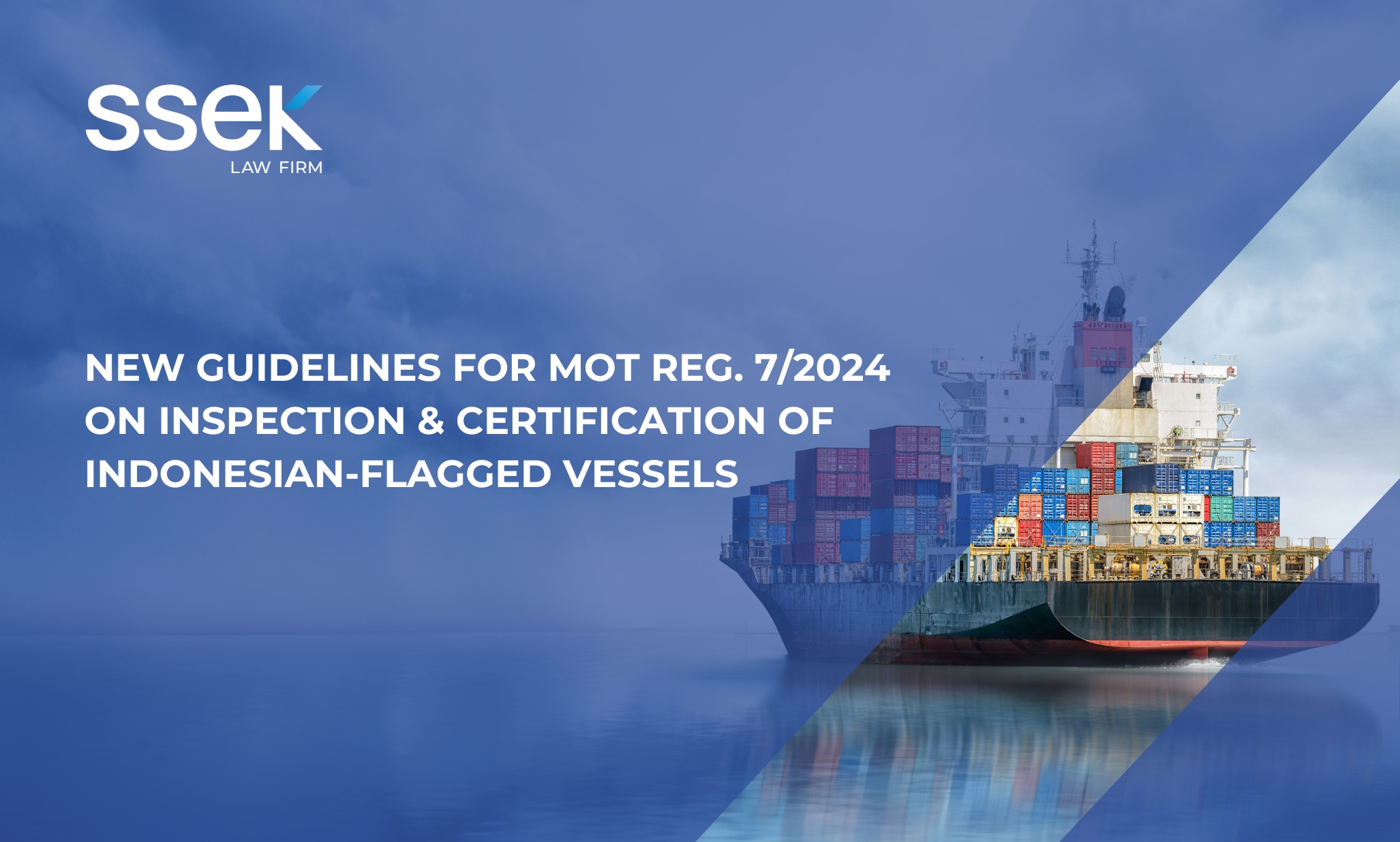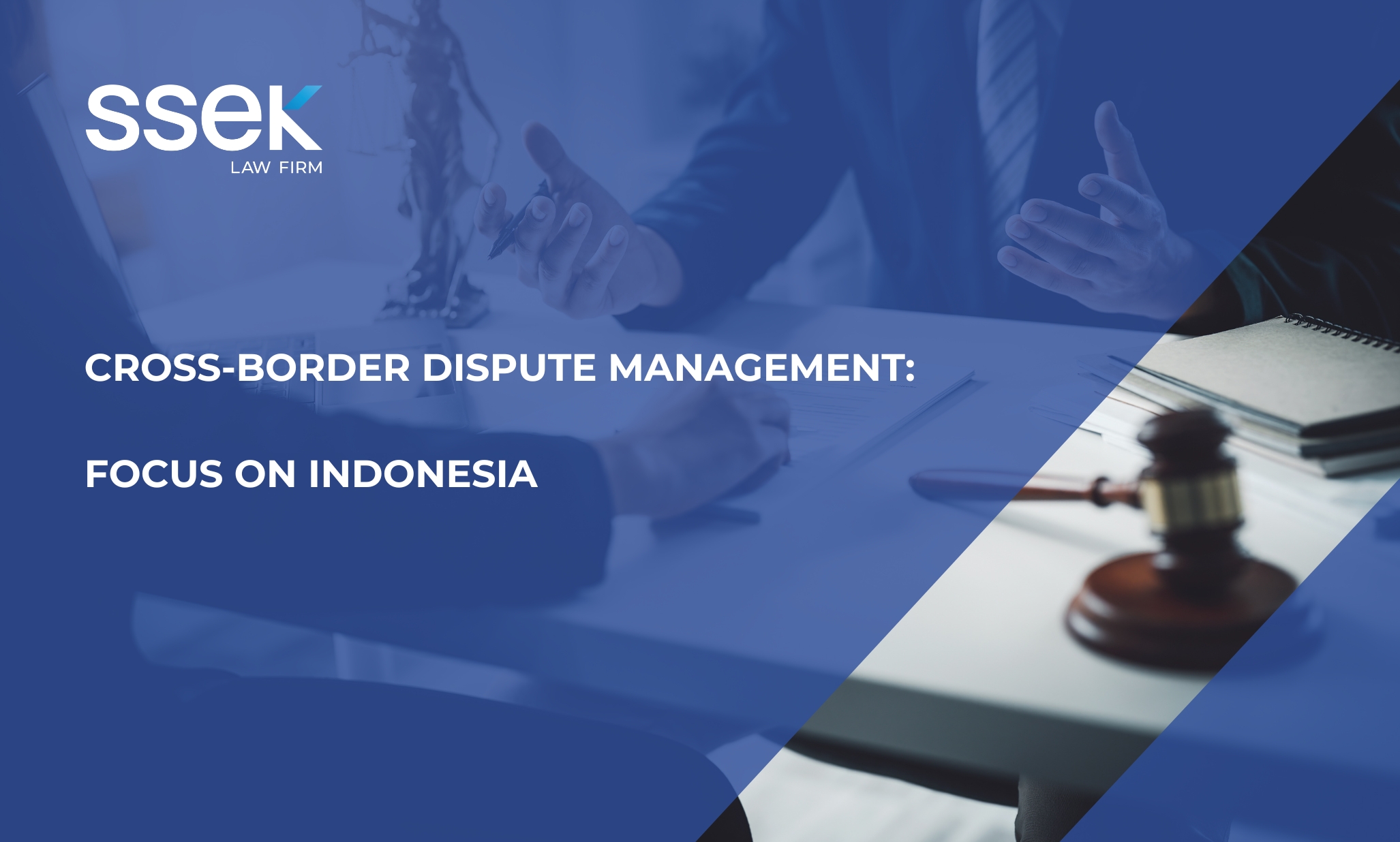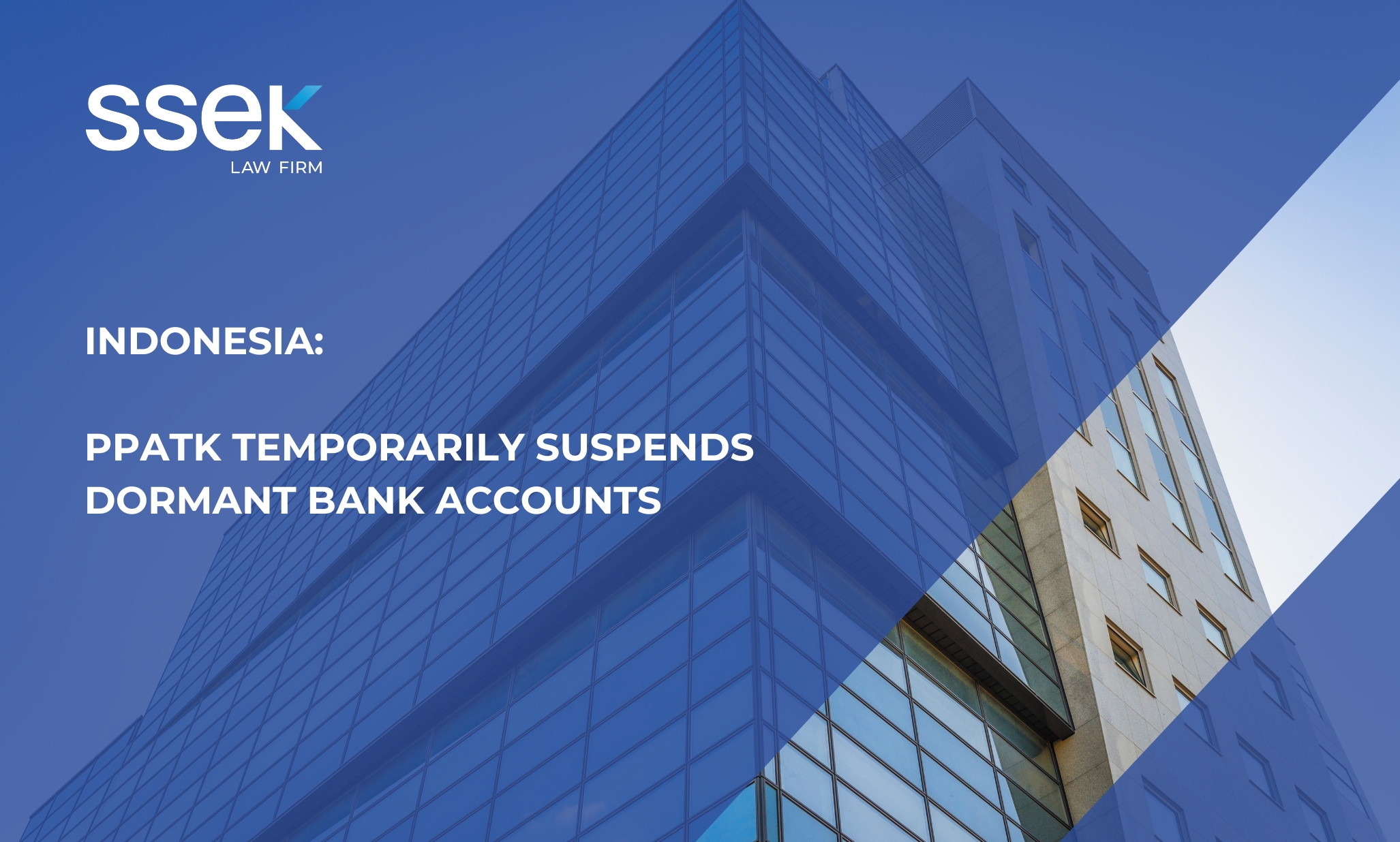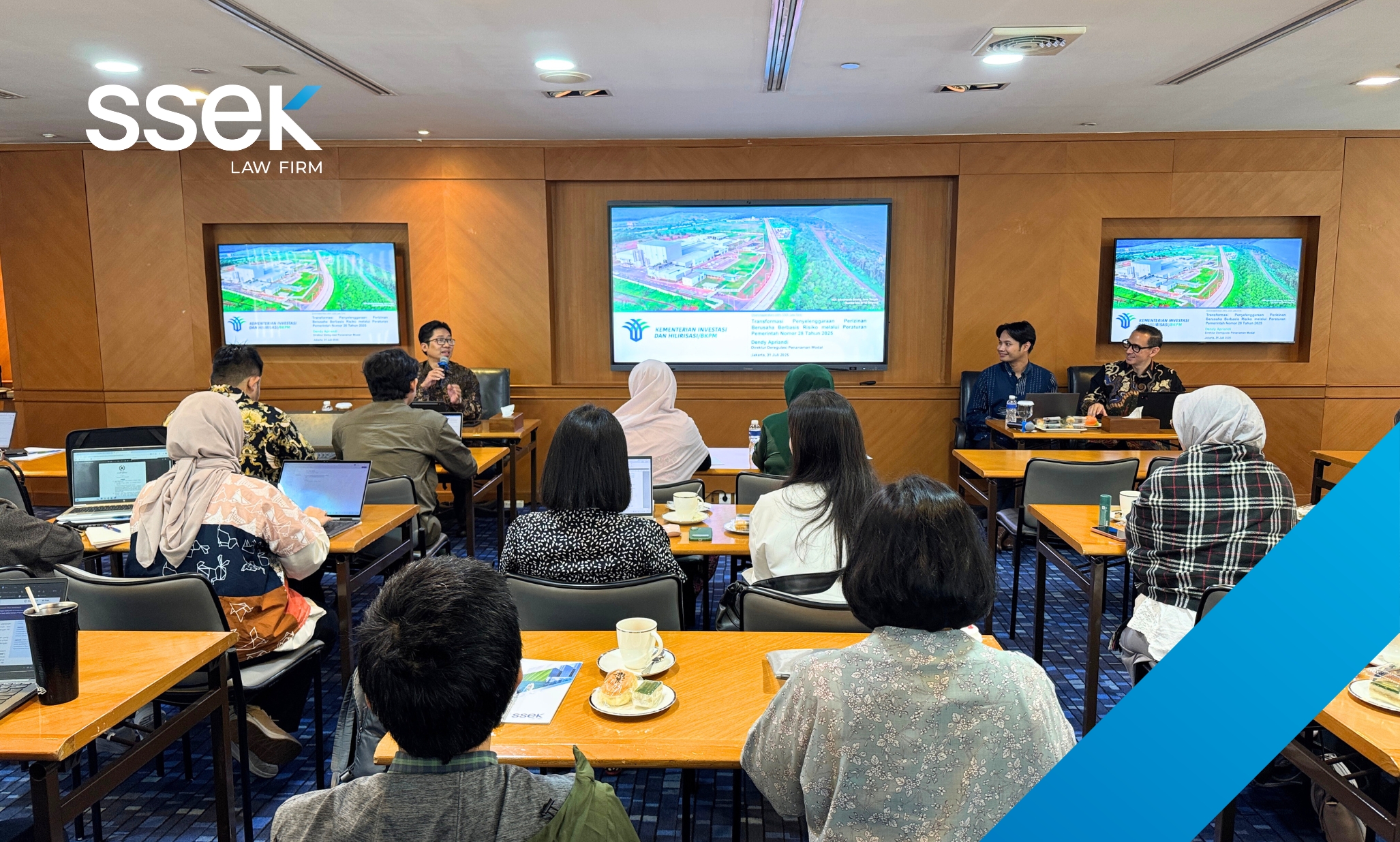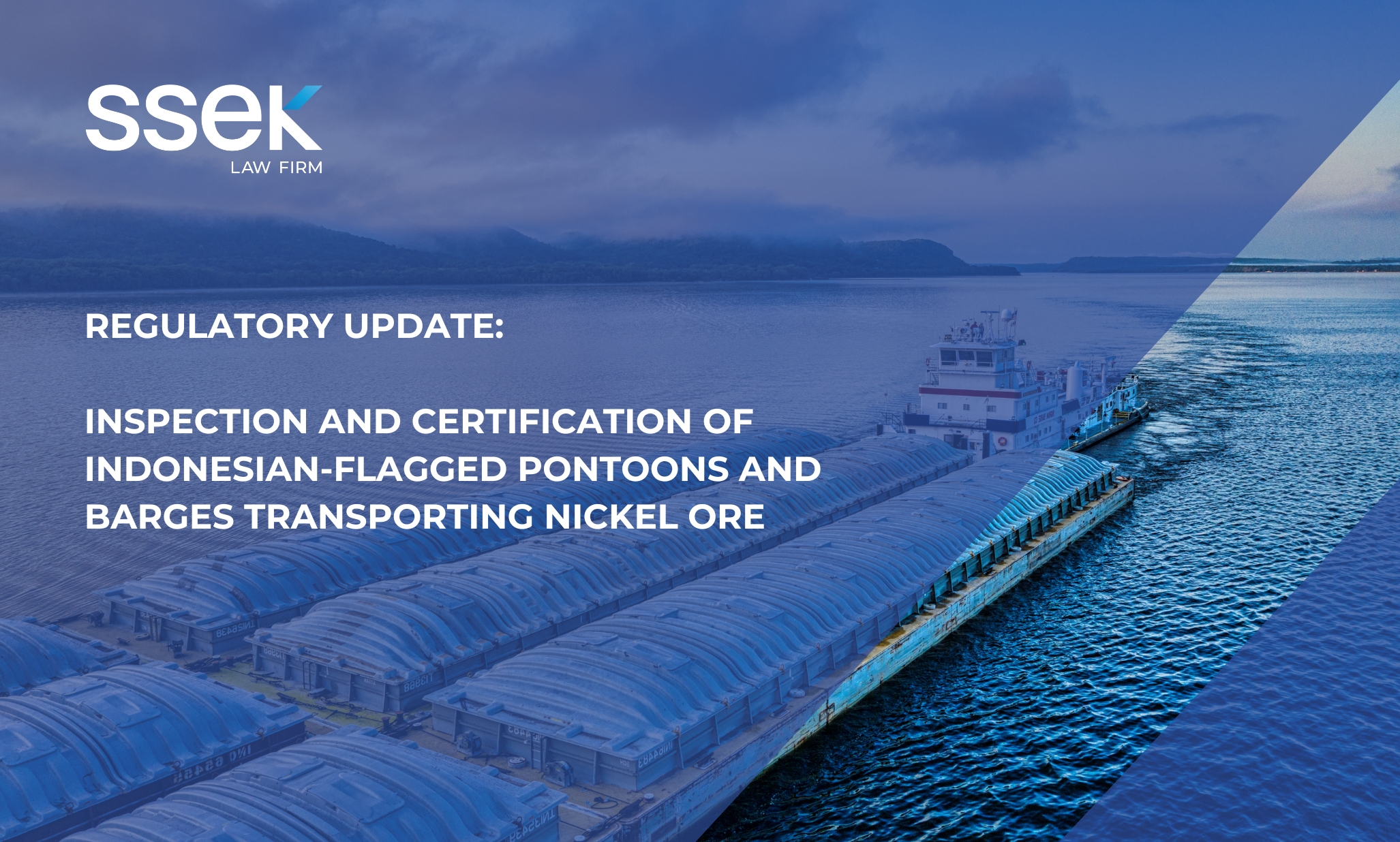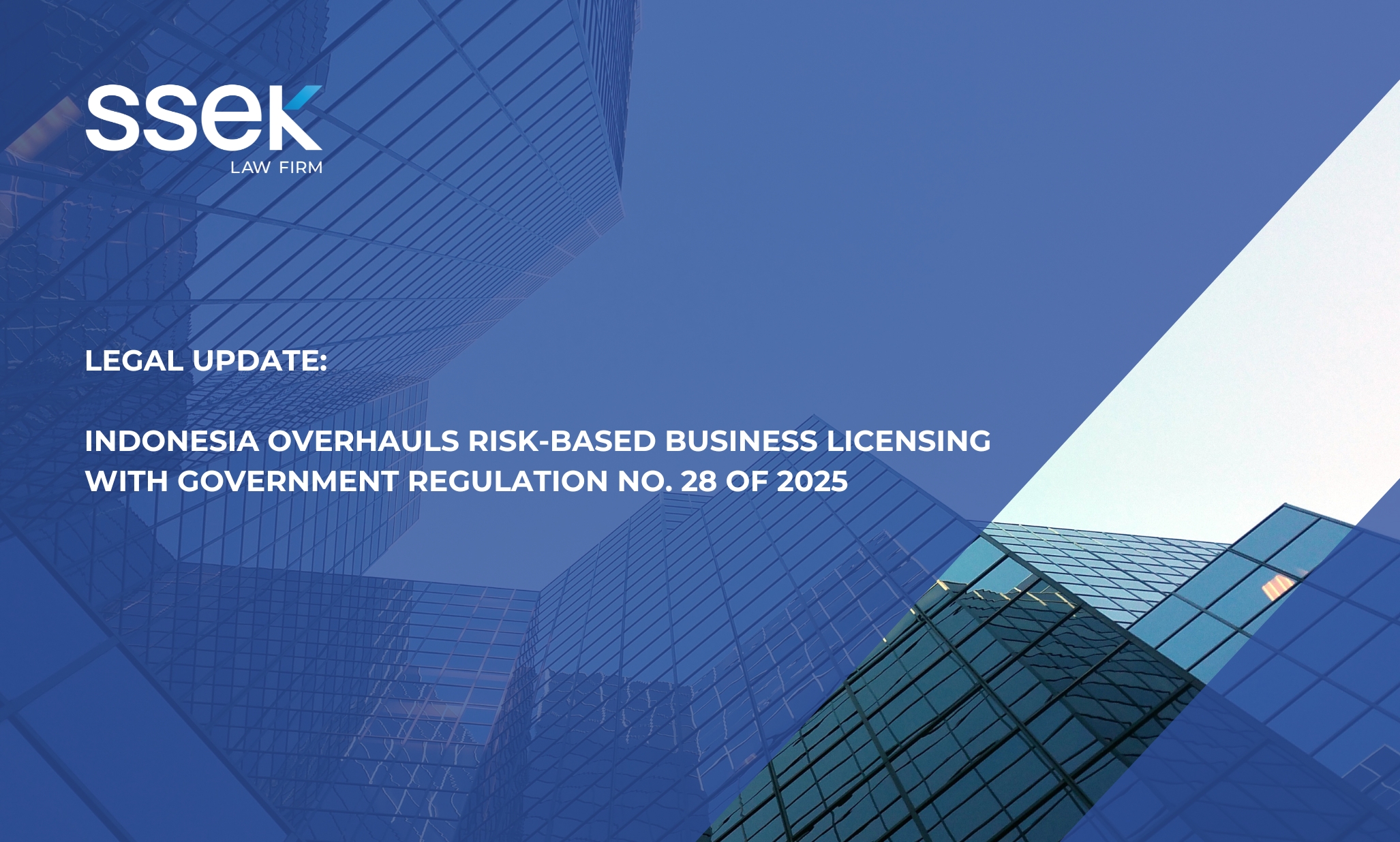


On June 5, 2025, the Government of Indonesia issued Government Regulation No. 28 of 2025 regarding the Organization of Risk-Based Business Licensing (“GR 28/2025”), which entered into force on the same date. GR 28/2025 revokes and replaces Government Regulation No. 5 of 2021 (“GR 5/2021”).
This overhaul introduces key institutional, procedural, and substantive reforms across the Online Single Submission (OSS) system, while reaffirming the government’s commitment to a digitally integrated, risk-based approach to licensing. GR 28/2025 comprises 552 articles in 14 chapters, codifying both the licensing and post-licensing supervision landscape in more granular detail than its predecessor.
- Transition Period and Migration to New OSS Platform
To enable the shift to the new regime, the OSS agency is required under Article 551(a) of GR 28/2025 to update the OSS system by no later than October 5, 2025. Until then, the existing OSS system remains functional and ongoing applications will continue to be processed in accordance with GR 5/2021, provided they are submitted with complete documentation.
Once the updated system is launched, businesses with registered OSS accounts will be required to manually update their account data, which may include re-uploading relevant licenses, adjusting business classifications, and completing any new profile fields introduced under GR 28/2025. Although no explicit deadline is imposed for this manual migration, prolonged inaction could impair the ability to file LKPM investment activity reports or process amendments, extensions, or changes to business licenses.
Article 549 of GR 28/2025 introduces a grandfathering clause under which all licenses issued under GR 5/2021 remain valid unless the provisions of GR 28/2025 are more favorable to the license holder. Business actors may voluntarily seek reissuance under the new regulation if it would provide a compliance or operational advantage.
- Structural Expansion of the OSS System
GR 28/2025 strengthens the OSS framework by expanding the licensing subsystems from five to eight. These include newly integrated platforms for:
- Principal License (Perizinan Dasar) – which now centralizes environmental, land use, and building approvals. Previously, the processing of a Principal License was still conducted outside the OSS platform, particularly in cases requiring the involvement of a local government and/or agency;
- Investment Facilities – which covers integrated platforms through the OSS system for the application of tax allowances, import-duty exemptions, and other fiscal incentives;
- Partnerships – which tracks and monitors mandatory and voluntary partnerships with SMEs and other business actors.
This expansion aims to increase regulatory coherence and reinforce the OSS’s function as a single window for business licensing and post-licensing compliance.
- Sectoral Coverage and Risk Classification
GR 28/2025 increases the number of sectors subject to risk-based licensing by adding seven new business sectors, including the creative economy, geospatial information, cooperatives, electronic systems and transactions, and investment facilitation.
The regulation also updates the risk classification methodology, though the qualitative designations of Low, Medium-Low, Medium-High, and High risk remain. While the number of business activities classified as High or Medium-High risk appears to have decreased, the total number of KBLI entries has grown from 1,348 to 1,417. This suggests that many previously unregulated activities have now been formally categorized and integrated into the OSS framework.
The number of Supporting Business Licenses (“PB UMKU”) has been reduced from 1,006 to 357, reflecting a consolidation of sectoral licensing obligations.
- Service Standards and the Deemed Approval (Fiktif Positif) Mechanism
GR 28/2025 formalizes and significantly expands the application of Service-Level Agreements (SLAs) across multiple types of business licenses and approvals. These include:
- Technical Approvals (Persetujuan Teknis);
- Environmental Approvals (Persetujuan Lingkungan); and
- Building Approval and Worthiness Certificates (PBG and SLF).
Each of these is now subject to maximum processing times that must be specified by the responsible agency and integrated into the OSS system. These time frames are binding and form the basis for triggering the fiktif positif mechanism, a concept that allows for deemed approval in cases of bureaucratic delay.
Under GR 28/2025, where a business actor submits an application in full compliance with both substantive and administrative requirements, and the competent authority fails to act within the prescribed SLA, the license is deemed granted. The OSS platform must then issue the relevant proof of licensing, with the same legal validity as a manually issued license.
This is a major departure from GR 5/2021, which applied the deemed approval mechanism more narrowly, mainly to Conformity of Spatial Utilization Activities (“KKPR”) approvals, and often left its implementation unclear. GR 28/2025 not only codifies this mechanism but applies it broadly across licensing types, reinforcing regulatory certainty and empowering businesses facing administrative inertia.
However, GR 28/2025 also introduces robust post-approval safeguards. Under Articles 244 and 245, the OSS Institution and relevant authorities retain the right to:
- Conduct post-licensing audits;
- Verify whether the application materials were complete and accurate at the time of deemed issuance; and
- Revoke the license if the audit reveals that the applicant misrepresented data or failed to meet material requirements.
If a license is revoked, GR 28/2025 provides for a written notice and requires the decision to be recorded and archived digitally in the OSS system. The balance between procedural efficiency and regulatory control is thus maintained, allowing compliant businesses to move forward while deterring opportunistic use of the fiktif positif mechanism.
- Fast-Track Licensing in Strategic Zones
GR 28/2025 introduces special provisions for the acceleration of licensing within strategic economic zones, including:
- Special Economic Zones (“KEK”);
- Free Trade Zones (“KPBPB”); and
- National Strategic Projects (“PSN”).
In these areas, the verification of certain documentary requirements may be deferred to the post-licensing stage, subject to audit. GR 28/2025 authorizes local KEK Administrators or Heads of KPBPB to issue Business License and PB UMKU licenses directly through the OSS system, streamlining approvals for investors operating in government-prioritized zones.
Nonetheless, companies must prepare all documentation as though undergoing a full review, as non-compliance discovered during post-approval audits may result in license revocation and potential administrative sanctions.
- Outlook and Next Steps
At the time of publication, implementing regulations under GR 28/2025 have not yet been issued. The Ministry of Investment and Downstreaming is expected to revoke the previous implementing regulations to align with the new regime. These are anticipated to be in place by October 5, 2025, in tandem with the updated OSS system.
In preparation for this transition, we recommend that businesses:
- Closely monitor the OSS portal and Ministry of Investment and Downstreaming announcements for updates and guidance;
- Review current KBLI classifications and assess any impact on licensing requirements;
- Prepare to revalidate OSS accounts and licenses upon system migration;
- Conduct a comprehensive internal audit of Principal License, Business License, and PB UMKU;
- Ensure complete and accurate documentation is available for each license type to withstand post-issuance audit scrutiny;
- Take advantage of fiktif positif where permitted, but exercise caution to avoid potential revocation risks.
We will continue to monitor implementing regulations and provide further updates as the regulatory framework develops.
This publication is intended for informational purposes only and does not constitute legal advice. Any reliance on the material contained herein is at the user’s own risk. All SSEK publications are copyrighted and may not be reproduced without the express written consent of SSEK.




